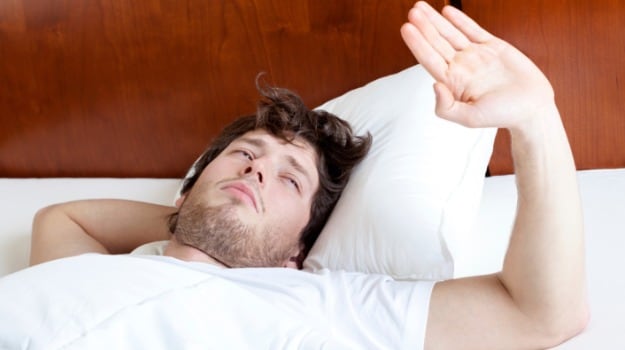Sleep has been an important point of discussion, especially in the last few months. Health experts and doctors have stressed on how important it is to get good sleep, be well-rested and allow your body to unwind. There's always a flipside to things and so you'll also find that another set of experts have touched upon the pitfalls of sleeping too much.
(How Many Hours of Sleep Do You Really Need?)
This time, a study deals with the relation between sleep deprivation and how it effects your blood pressure. But before we do that, let's understand how blood pressure changes through the day and why. According to Mayo Clinic, "blood pressure is normally lower at night when you're sleeping and starts to rise a few hours before you wake up. It continues to rise during the day, peaks in the afternoon, then in the evening and late evening. And then, it starts to drop again."
So if you're battling with chronic sleep deprivations, chances are that you'll have high blood pressure at night. And according to this new study done at Mayo Clinic, this could put you at a greater risk of heart disease. "For the first time, we demonstrated that insufficient sleep causes increases in night time blood pressure and dampens nocturnal blood pressure dipping," said lead author Naima Covassin from Mayo Clinic in the US.
(Worst Foods that Ruin Your Sleep)
Covassin added, "We know high blood pressure, particularly during the night, is one of the major risk factors for heart disease."
The results stemmed from a controlled study that mimicked the sleep loss experienced by many people. In this study, eight healthy normal weight participants aged 19 to 36 participated in a 16-day in-patient protocol consisting of a four-day acclimation period followed by nine days of either sleep restriction (four hours of sleep per night) or normal sleep (nine hours of sleep per night), and three days of recovery. Twenty four blood pressure monitorings at regular intervals were measured at each study phase.
During night time, in the sleep restriction phase compared to normal sleep phase, systolic (top number) and diastolic (bottom number) blood pressure averaged 115/64 millimeters of mercury (mm Hg) versus 105/57 mm Hg respectively, researchers found.
Furthermore, the expected fall in blood pressure during the night was suppressed when the people had inadequate sleep. They also found that night time heart rate was higher with sleep restriction than in normal sleep. The findings are scheduled to be presented at the American College of Cardiology's 64th Annual Scientific Session.
With inputs from IANS



